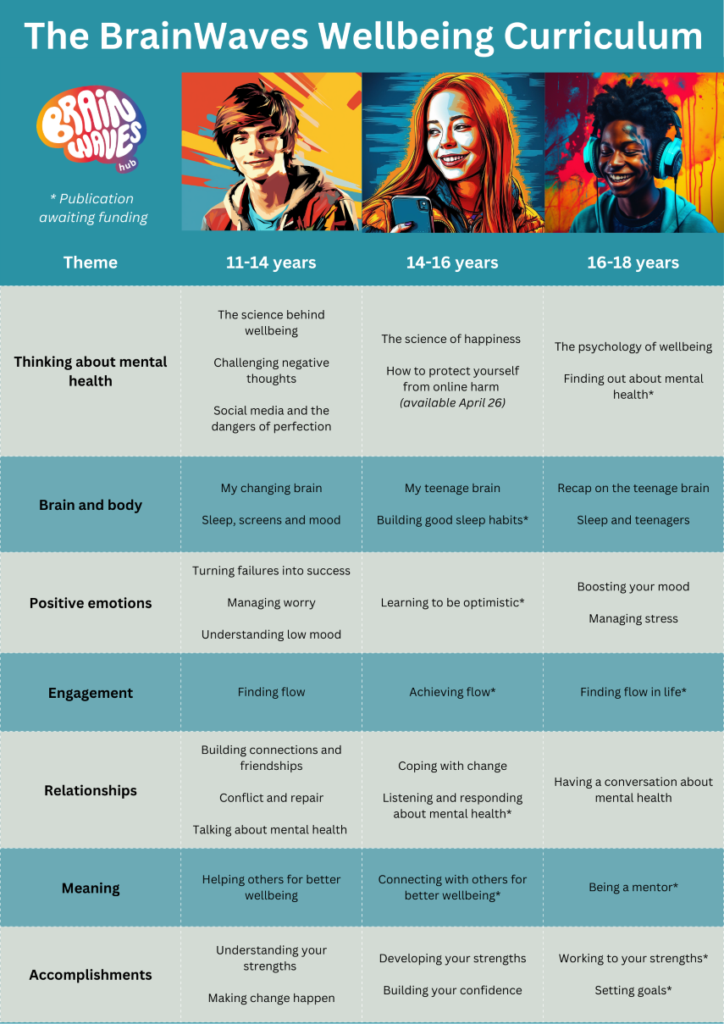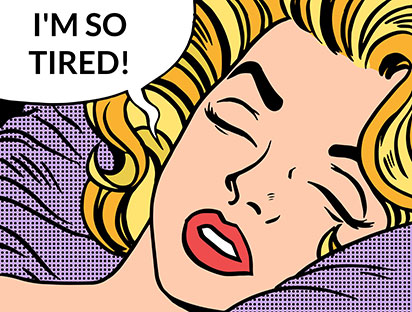Skip to main content Wellbeing lessons available BrainWaves is delighted to present a free wellbeing curriculum for use across secondary schools and sixth forms. 11-14 Finding flow Explore with students what ‘flow’ is all about and how flow activities can help improve wellbeing. 11-14 Connections and friendships Help students understand the important of social connection and how to develop friendships. 11-14 Talking about mental health Help students take that important first step in reaching out to talk about their mental health. 11-14 Connections and friendships Help students understand the important of social connection and how to develop friendships. 11-14 Challenging negative thoughts Help students identify negative thoughts and use positive self-talk to improve their wellbeing. 11-14 Conflict and repair Help students understand ways of dealing with conflict and repairing relationships. 11-14 Finding flow Explore with students what ‘flow’ is all about and how flow activities can help improve wellbeing. 11-14 Helping others for better wellbeing Explore with students the positive impact that kindness and helping others can have on wellbeing. 11-14 Making change happen Help students set and use SMART objectives as a way of reaching their goals and making positive changes to their wellbeing. 11-14 Managing worry Introduce students to a range of strategies that help them understand and deal with everyday worries and anxiety. 11-14 My changing brain Discover how the teenage brain changes through adolescence and the impact this has on wellbeing. 11-14 Sleep, screens and mood Explore how sleep and screens can impact students' mood and wellbeing. 11-14 Social media and the dangers of perfection Help students understand how comparing themselves with highly-edited images on social media can affect their self-esteem. 11-14 Talking about mental health Help students take that important first step in reaching out to talk about their mental health. 11-14 Turning failure into success Help students discover the key resilience concepts of grit and a growth mindset. 11-14 Understanding your strengths Introduce students to the concept of character strengths and using them to promote better wellbeing. 11-14 The science behind wellbeing Help students explore the evidence behind the concepts of happiness and wellbeing. 14-16 The science of happiness Help students discover the research and evidence behind what it means to be happy. 14-16 Developing your strengths Remind students of the concept of character strengths and how they can influence our wellbeing. 14-16 My teenage brain Help students understand the neurological changes that are taking place inside their brain. 14-16 Building your confidence Explore with students the difference between self-confidence, self-esteem and self-acceptance. 14-16 Coping with change Help students understand how they can manage both planned and unexpected changes in a positive way. 16-18 The psychology of wellbeing Help students understand the psychological theories behind wellbeing and flourishing. 16-18 Recap on the teenage brain Help teenagers understand the changes that take place in their brain during adolescence and how this affects their mental health. 16-18 Sleep and teenagers Explore how sleep pattern and hormones change for adolescents and how teenagers can get more sleep. 16-18 Managing stress Capture what students have already learnt about stress management and bolster their knowledge about relaxation techniques. 16-18 Having a conversation about mental health Give students the confidence to start a conversation about mental health and know how to support their peers in return. 16-18 Boosting your mood Show students how to use behavioural activation to deliberately boost their mood when feeling down or depressed.


























